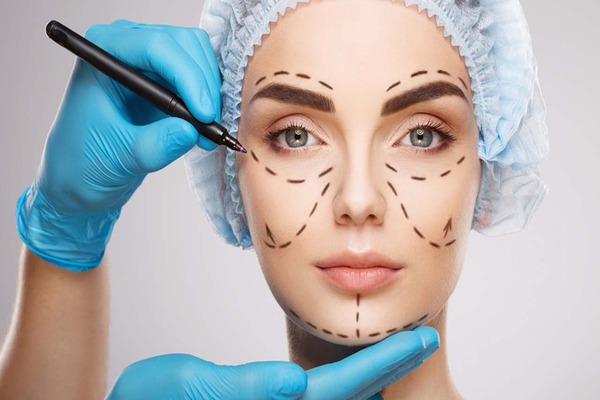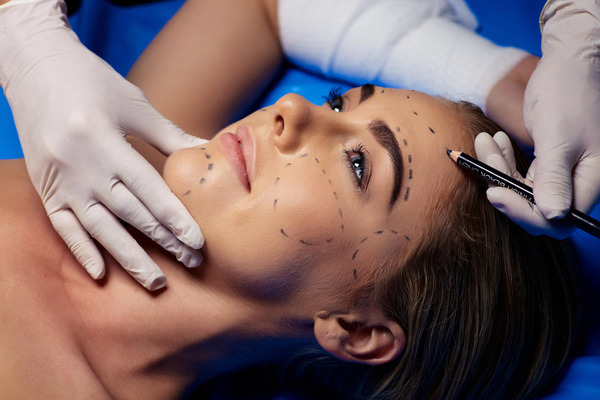Plastic surgery has long been a topic that sparks intense debate. For some, it’s a confidence booster—a way to correct what they see as physical flaws. For others, it’s a troubling symbol of vanity or society’s obsession with beauty. From subtle tweaks to major transformations, millions undergo procedures each year. But is it worth it?

Let’s take a deeper look at the pros and cons of plastic surgery to help answer the question: What do you really think of it?
What is Plastic Surgery?
Plastic surgery refers to surgical procedures that involve the reconstruction, restoration, or alteration of the human body. It can be broadly categorized into two types:
- Reconstructive surgery: Corrects defects due to birth disorders, trauma, burns, or disease. Examples include cleft lip repair or breast reconstruction after mastectomy.
- Cosmetic (or aesthetic) surgery: Performed to improve appearance rather than for medical reasons. Examples include rhinoplasty (nose jobs), facelifts, liposuction, and breast augmentation.
While reconstructive surgery is generally seen in a positive light due to its life-enhancing impact, cosmetic surgery tends to provoke more mixed reactions.
The Pros of Plastic Surgery
1. Boost in Self-Confidence
Perhaps the most cited reason people opt for cosmetic surgery is the potential for improved self-esteem. When someone feels better about their appearance, it often translates to improved social confidence, work performance, and overall happiness. Procedures that enhance one’s features—like correcting a prominent nose or improving skin texture—can make a big psychological difference.
2. Physical Health Improvements
Some surgeries are both cosmetic and medically beneficial. For instance, rhinoplasty can improve breathing problems, and breast reduction surgery may relieve back pain and posture issues. Eyelid surgery can enhance vision when drooping eyelids impair sight. In these cases, the benefits go beyond appearance.
3. Reconstruction After Trauma or Illness
Plastic surgery is often used after severe accidents or major medical treatments, like cancer. Reconstructive surgeries help restore function and appearance, allowing patients to regain a sense of normalcy. It plays a key role in helping burn victims, accident survivors, and post-surgical patients reclaim their bodies.
4. Motivation for Healthy Lifestyle Changes
Interestingly, some people who undergo plastic surgery are inspired to maintain the results through a healthier lifestyle. A person who’s had liposuction might start exercising more regularly to prevent weight gain, or someone who has had a facelift might pay more attention to skincare.
5. Technological Advancements = Safer Procedures
Thanks to modern medical technology, procedures today are safer, faster, and more effective than ever. With better surgical techniques, anesthesia, and recovery plans, complications are less frequent, and results are more natural-looking.

The Cons of Plastic Surgery
1. Risk of Complications
Like any surgery, plastic surgery comes with risks: infection, scarring, blood clots, and anesthesia complications. Sometimes, the results don’t match expectations, leading to further distress or the need for corrective procedures. In rare cases, surgeries can have severe and long-term health effects.
2. High Cost
Plastic surgery is often expensive and not covered by insurance, especially when it’s cosmetic. The financial burden can be significant, with some people going into debt to afford the procedure. Maintenance surgeries or corrections can further increase costs.
3. Unrealistic Expectations
Sometimes patients expect surgery to change their lives entirely. While improving one’s appearance can enhance self-esteem, it doesn’t solve deep-rooted self-worth issues. Without proper mental preparation, patients may feel disappointed, even after a “successful” surgery.
4. Addiction to Surgery
There’s a psychological condition known as Body Dysmorphic Disorder (BDD), where people obsess over perceived flaws in their appearance. Individuals with BDD may undergo multiple surgeries, never feeling satisfied. This can lead to addiction, with some constantly chasing the next “fix.”
5. Social Stigma and Judgment
Despite its growing popularity, plastic surgery still carries a certain stigma. Some people judge others who choose to go under the knife, viewing them as vain or superficial. This can lead to shame or secrecy about procedures, especially for public figures or professionals.

Plastic Surgery in Pop Culture and Social Media
The rise of influencers, celebrities, and beauty filters on social media has added more fuel to the plastic surgery debate. “Instagram Face”—a term for the uniform look of high cheekbones, full lips, and narrow noses—has become a beauty standard driven by procedures like fillers and Botox.
Many argue that these trends promote unattainable beauty ideals, especially among young people. Teenagers are increasingly seeking cosmetic enhancements, influenced by social media culture. Critics warn this may lead to long-term self-esteem issues and unnecessary surgeries.
On the flip side, others see social media as a platform for transparency and education. Many influencers openly share their surgical journeys, destigmatizing procedures and providing realistic expectations.
So… What Should You Think?
The answer depends on your personal values, motivations, and understanding of the procedure.
If someone is seeking surgery to feel more aligned with their self-image and has realistic expectations, plastic surgery can be empowering and transformative. But if the motivation is external validation or perfectionism, it might be worth exploring other routes like therapy or self-acceptance practices first.
Ultimately, the decision should come from a place of self-care—not pressure, comparison, or insecurity.

Tips for Anyone Considering Plastic Surgery
- Do Thorough Research
Look into the surgeon’s qualifications, read reviews, and check before-and-after photos. A board-certified plastic surgeon is essential. - Understand the Risks
Know the potential complications, downtime, and what the healing process looks like. - Set Realistic Expectations
Surgery can enhance your appearance—not make you look like a completely different person. - Prioritize Mental Health
Consult a therapist if you’re struggling with body image. Surgery is not a cure for deeper emotional issues. - Don’t Rush
Take time to think through your decision. A good surgeon will never pressure you into a procedure.
Plastic surgery isn’t inherently good or bad—it’s a personal choice. Like any decision that impacts your body and mind, it requires careful thought, proper guidance, and emotional readiness. For some, it’s a way to reclaim confidence and improve quality of life. For others, it’s not worth the risk or cost.
The important thing is to make an informed decision that aligns with your own values—not what society or social media tells you to do.



